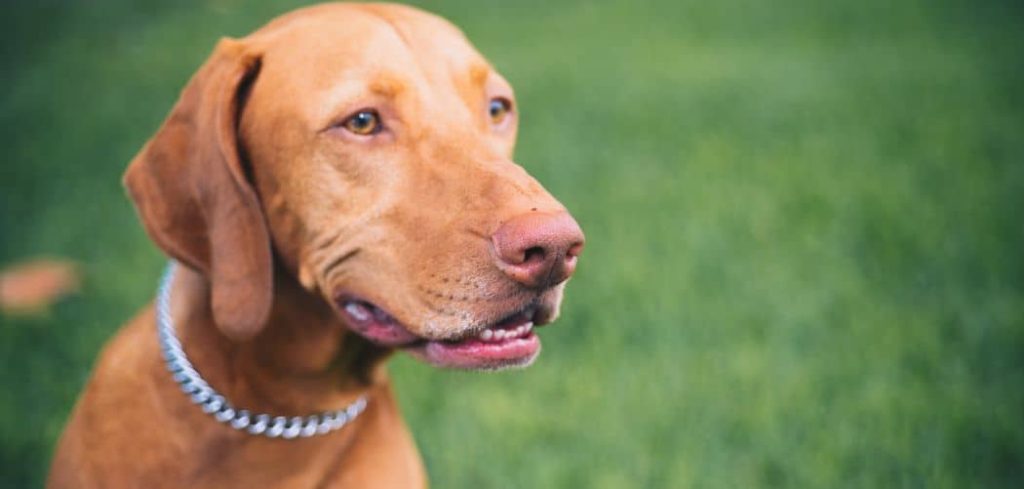When a dog starts vomiting bile and mucus, it can be alarming and confusing for owners. The mixture of digestive fluid and thick mucus may point to an underlying illness or something more serious.
We outline the common reasons for a dog vomiting bile and mucus, what you can do at home, and when to seek veterinary help.
Dog Vomiting Bile and Mucus — Why It Happens
Dogs vomit bile and mucus when their stomach or digestive tract becomes irritated or inflamed. This may be due to issues like an empty stomach, dietary indiscretion, gastritis, intestinal blockages, or even systemic illnesses like liver or kidney disease. Some cases are mild and temporary, while others require urgent veterinary treatment.

Dog Vomiting Bile and Mucus: Common Causes
Empty Stomach (Bilious Vomiting Syndrome)
When a dog’s stomach stays empty for too long, bile can leak into the stomach and irritate its lining.
This irritation often leads to vomiting that includes yellow-green bile mixed with mucus. Dogs with this issue may vomit early in the morning or late at night, when they have not eaten for many hours.
Though not always dangerous, it can be very uncomfortable and should not be ignored.
Read more: Dog Vomiting Blood and Mucus but Acting Normal (Here’s why)
Dietary Indiscretion
Dogs are curious eaters, and consuming spoiled food, garbage, or foreign objects can irritate the digestive tract.
The body often reacts by producing excess mucus and forcing vomiting to expel the irritant.
Owners may notice other symptoms like drooling, abdominal discomfort, or lethargy. Depending on what was eaten, this can range from mild stomach upset to a veterinary emergency.
Gastritis
Inflammation of the stomach lining, known as gastritis, can cause dogs to vomit bile and mucus repeatedly.
Gastritis may result from infections, toxins, or eating something inappropriate. Along with vomiting, dogs might also have decreased appetite, diarrhea, and abdominal pain.
Chronic gastritis requires a vet’s evaluation, as repeated irritation can harm the stomach lining.
Intestinal Blockages
If a dog swallows something that causes a blockage in the intestines, bile and mucus may build up in the stomach and be vomited out.
Blockages are very serious, as they prevent food and fluid from moving through the digestive system.
Dogs may vomit repeatedly, refuse food, and become weak or dehydrated quickly. This is a true emergency that requires immediate surgery.
Pancreatitis
Pancreatitis, or inflammation of the pancreas, often leads to vomiting that contains bile and mucus. This condition may be triggered by eating fatty foods or underlying health issues.
Dogs with pancreatitis usually appear very unwell, showing signs like abdominal pain, lethargy, and refusal to eat. Because pancreatitis can escalate quickly, veterinary treatment is essential.
Liver or Kidney Disease
Chronic illnesses such as liver disease or kidney failure can cause vomiting that contains bile and mucus.
These organs play a major role in filtering toxins and aiding digestion, so when they are compromised, the digestive system often suffers.
Vomiting may be accompanied by weight loss, excessive thirst, or changes in urination. Early veterinary care is important to manage these conditions.
What to Do If Your Dog Is Vomiting Bile and Mucus
If your dog vomits once but then seems normal, you can monitor them closely at home. Offering small, bland meals such as boiled chicken and rice may help settle the stomach.
Make sure your dog has access to fresh water, as dehydration can set in quickly. Feeding smaller, more frequent meals may also help if the vomiting was due to an empty stomach.
However, if vomiting continues or is paired with other symptoms like lethargy, diarrhea, or refusal to eat, it is best to contact your veterinarian.
Avoid giving human medications, as many are toxic to dogs. Keeping a record of when the vomiting occurs and what the vomit looks like can help the vet determine the underlying cause.
When to Call or Visit Your Vet
Contact your veterinarian right away if your dog vomits bile and mucus multiple times in a day or over several days. Persistent vomiting can quickly cause dehydration and may signal a more serious illness.
If you notice blood in the vomit, severe abdominal pain, or signs of weakness and collapse, treat it as an emergency. These symptoms may point to conditions such as blockages, pancreatitis, or organ failure that require urgent care.
Even if the symptoms appear mild, any ongoing vomiting in dogs should be evaluated. Early treatment often prevents complications and ensures your dog recovers quickly.
Read more: Dog Vomiting Blood and Mucus (When to worry)
Key Takeaway
When a dog is vomiting bile and mucus, it may be due to something minor like an empty stomach or as serious as pancreatitis or intestinal blockage.
While some cases improve with simple at-home care, others need immediate veterinary attention. Watching for warning signs and seeking help when necessary ensures your dog gets the right treatment and the best chance at recovery.
